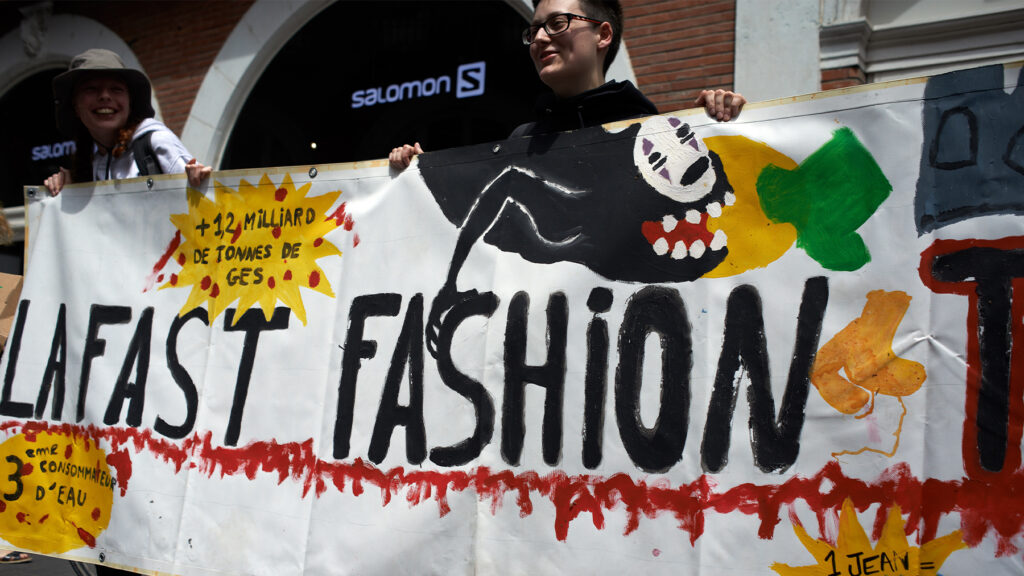Fast fashion is one of the top three polluting industries on the planet, and the rise of weekly micro-trends is just making it worse. As a response to this, many countries are taking measures to combat textile waste, and French senators backed what can be a game-changing law.
Not only are they proposing consumers be given more information about the clothes they’re buying, this encouraging transperancy in the supply chain, but no longer can fast fashion be advertised on the same scale as before. Moreover, it encourages reuse and upcycling, something that the European Parliament has already agreed on. Following the logic of polluters pay, it was agreed that laws need to ensure fast fashion companies and textile producers pay for collecting and recycling old products.

While some might be curious if this might impact, small businesses, the definition of fast fashion ensures that only companies meeting a certain criteria are affected which is based on yearly products. This proposed law according to some such as Impact France will also help French indigenous textiles and brands. The law aims to reduce waste and help the planet and ensuring better supply chains in turn can help women working in these companies, even if sustainability advocates are rightfully protesting less severe restrictions on “classic” fast fashion brands.
Yet, it’s not all rosy. Many giants in this industry have shown us how take-back and recycling programs can be manipulated and greenwashed. While many small companies are trying their best to hold up these ethos, especially by encouraging second-hand clothing alongside bigger giants, thrifting and recycling has become another form of over consumption that holds up fast fashion as people think they can just toss their clothes in the upcycle or donate bins and buy more. While it is better than the current models, it still doesn’t encourage mindfulness and some of these companies are notorious for shipping “donations” and “recycleables’ to landfills in the Global South.
People need new clothes sometimes and there can be sustainable ways of getting them by thrifting, upcycling, mixing and matching, swapping, or shopping slow when viable and necessary. Repairing and repurposing are also good ways to go. Reuse, of course, is always encouraged when talking about ethical fashion. And France’s move is definitely is a step in this same right direction, especially if coupled with conscious consumption or value-core ideologies.
Also check:- 2025’s Hottest Men’s Wear Styles
The question is, can we replicate the same in India? Stay tuned to NB News for more global fashion news.

